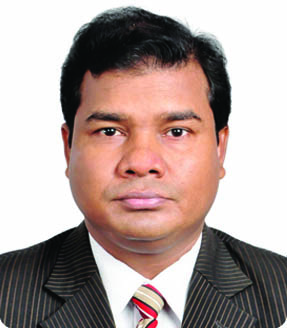cross-cutting policies needed for economic growth

Achieving high economic growth with shared prosperity requires coordination of cross-cutting policies and synchronisation of multi-sectoral programmes, said experts. They said setting an ambitious goal is the starting point of a long journey that will require steadfast resolve to steer the course while making hard political and economic choices along the way.
"Over the next half-century, Bangladesh will have to cope with rapid transformational shifts in agriculture, trade and industry, education and healthcare, transport and communication, and in the way we work and conduct business", experts mention, adding that this is why, a road map like the 'Perspective Plan 2041' is necessary.
Two principal visions, underpin the PP204, are the country will be a developed country by 2041, with per capita income of over $12,500 in today’s prices (more than $16,000 in 2041 price), and fully in tune with the digital world and Poverty will become a thing of the past. The transition-indeed transformation-can be realized through a process of rapid inclusive growth leading to elimination of poverty while increasing the productive capacity, building an innovating knowledge economy and protecting the environment.
Officials concerned told that it is critical that thematic and sectoral strategies under 'PP 2041' are robust and internally consistent. High growth, job creation, and reduction of poverty and inequality are the final outcomes.This, in turn, demands effective tax and expenditure policies, savings mobilisation and investment growth, strong focus on transport, trade, and energy infrastructure to raise productivity of firms engaged in economic activities.
As the movement from agriculture-to-industry and rural-urban migration reach the turning point with the tightening of labour markets, job-creating export-oriented industrialisation in a digital era of globalisation and Fourth Industrial Revolution (Industry 4.0) will need consistent trade policies in tune with 21st century cross-border transactions of goods and services.
Agriculture, though declining in relative size, will remain a pivotal sector for food security and nutrition balance, and inter-sectoral policies have to be directed towards gaining a highly productive modern agriculture that is also climate change-resilient over the long-term.For reaching high-income status in two decades, there is no alternative to investing in human capital development by raising educational quality and deepening skill development programmes to support innovation-driven knowledge society of the future.
Dr. Shamsul Alam, senior secretary of General Economics Division, Bangladesh Planning Commission told that the government has been working to formulate a 2021-2041 development plan to make the country a developed and prosperous one by 2041.He said the Perspective Plan is scheduled to be implemented by two consecutive five-year plans namely the Sixth Five Year Plan (2011-2015) and the Seventh Five Year Plan (2016-2020).
"Since 2010, the year of commencement of the First Perspective Plan, the country has already attained the Lower-Middle-Income-Country status, gross domestic product (GDP) growth rate has crossed the milestone of eight per cent and has been indicating an accelerated growth path", he added.He mentioned that the National Economic Council (NEC) to formulate the Second Perspective Plan. This is to be implemented from 2022 to 2041. This perspective plan has taken the Vision 2041, declared by the Honourable Prime Minister Sheikh Hasina, as its base.





